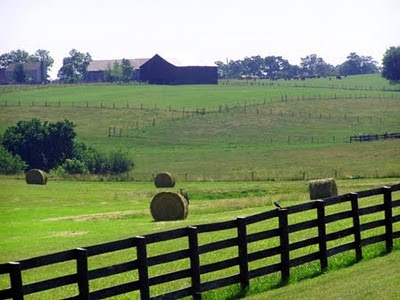I don’t know if Solomon Porcius Sharp (above) could have been President. But a man who had the job, John Quincy Adams, described the Kentucky lawyer as, “The brainiest man that ever came over the Allegheny Mountains.” He was not, however, a very nice man. But then nobody in this story were very nice people. Some were born that way, and some became not very nice with circumstances..
Kentucky became a state in 1792, and, in 1825, was still mostly wilderness, And yet the 38 year old Sharp had already served two terms as a Congressman for the state, four years as State Attorney General, and was now starting his second term as a state legislator – so the boy was not lacking for ambition, brains or talent. He spent his last day on earth, Sunday, 5 November, 1825, conferring with political allies. Every indication was that come Monday morning, he would easily be elected Speaker of the Kentucky House. It even seemed possible his next stop would be the United States Senate, and then, possibly, the White House; except, an ex-girlfriend of his had other plans.
Her name was Anna Cooke, and in her youth she had been a real Southern Belle. However Anna was never described as a great beauty. And her family were nearly destitute, having lost both their fortune and their father in the depression of 1819. Forced to retreat with her mother and five younger brothers to first Bowling Green and then to a small farm in southern Kentucky, Anna was not likely to make a good match. But she was "a freethinker, reader of romantic fiction, and a libertine." Or so said her critics. I suspect she also had a passion for men and for gambling and for gambling on men. Given her situation and the times, she had little choice if she wanted to get ahead, But like all gamblers, the more Anna gambled the more she lost. Few suitable men of "good families" (i.e. wealthy,) wanted to be responsible for her debts.
In 1820, at the age of 35 and still single , Anna had gambled heavily on Solomon P. Sharp. But when she became pregnant that year, Sharp refused to marry her. The lady was now officially socially ruined. And after her child was still born, the lady had nothing left to lose. In May of 1820, determined to return the pain she had endured, Anna publicly accused Solomon Sharp with being the father. His political allies responded by claiming the dead child had been born with black skin, and thus could not be the child of a white politician
In a slave state like Kentucky, in a bigoted misogynous nation such as America in 1820, in a land "of the fiddle and whiskey, sweat and prayer, pride and depravity" it was a truly vicious attack. With no living male relatives willing to challenge Sharp to a duel, (all three of her brothers had recently died of fever) Anna had no way to respond. In fact, her reputation was left in tatters no matter which side was believed. And two hundred years later it is impossible to comprehend the depth of her social isolation. But we are certain about what happened next.
By 1824 Anna Cook was a spinster approaching forty, and her rose had withered. A critic described her as short, with dark hair and eyes, a few missing teeth, stoop shouldered and “in no way a handsome or desirable woman.” And yet inside Anna there still burned a passion, which had metamorphosed into a burning fierce hatred of her old boyfriend, Solomon Sharp.
And just at this opportune moment 22 year old Jereboam Orville Beauchamp (above) appeared and asked for her hand in marriage. He had been a neighbor for some years, and a one time law student in Sharp’s office. And to hear Jereboam tell it, the hypocrisy of the vicious attack against Anna had awakened an almost religious hunger for justice within him...or so he said. In response to his proposal, Ann agreed with one stipulation. She would marry the younger Jereboam if he promised to murder Solomon Sharp. Thus, to call their marriage an affair of the heart seems somehow to have missed the point. And as soon as it was convenient after the 1824 wedding, Jereboam traveled to the state capital of Frankfort, looking to fulfill his promise to his new bride.
Of course there might have been another explanation for the timing of Jereboam’s marriage and expedition to Frankfort, besides moral outrage. The week before, on 25 October, 1825, a warrant for Jereboam’s arrest had been issued by the sheriff in Bowling Green, Kentucky. It seems a single young woman named Ruth Reed was suing Jereboam for child support. So the gallant defender of Anna's chaste womanhood might well have been the dead-beat dad of an illegitimate child himself. Do you get the feeling that the public morality of neither of the times nor Mr. Beauchamp nor Ms. Cook nor Mr. Sharp, were quite what they claimed to be? Sort of just like today, yes?
Frankfort in November of 1825, when Jereboam arrived, was a wooden town of just 1,500 souls. It had been established at a ford across the Kentucky River, and was named for Stephen Frank, an early settler. The village became the state capital because local boosters contributed $3,000 in gold to the state treasury, and property for building public buildings. It was not a generous act, as the boosters got rich selling house lots in the new burg.
But despite the investment, Frankfurt was, in 1825, and remains to this day, one of the smallest state capitals in the Union. There were in 1825, a few brick structures in town, so fire was constantly updating the architecture of all the wooden buildings. Earlier in 1825 Frankfort had burned down its sixth state capital building, and the legislature was currently renting a Methodist Church for its use.
Directly across Madison Street from that Methodist temporary cathedral of democracy was the rented two story abode of Solomon Sharp, his wife and their 3 children. And around the corner from the front of the mansion there was a second door (above , right), which opened directly onto the family room. It was referred to as the side/rear entrance.
Jereboam waited in the shadows of the Methodist church until Sharp returned to his Madison street home, sometime after midnight on 6 November, 1825. Then, as the clock approached two in the morning, he knocked on a side/rear door.
In the murder's own words, "“I knocked three times loud and quick, Colonel Sharp said; "Who's there" - "Covington I replied," quickly... Colonel Sharp opened the door. I advanced into the room and with my left hand I grasped his right wrist. The violence of the grasp made him spring back and trying to disengage his wrist..."I don't know you," said Colonel Sharp...Mrs. Sharp appeared at the partition door and then disappeared... I said in a persuasive tone of voice, "Come to the light Colonel and you will know me," and pulling him by the arm... " Jereboam then cut the conversation short by thrusting a dagger into Solomon’s neck, severing his aorta. Solomon Sharp was dead shortly after he hit the floor. Jereboam then fled into the night. The first political assignation in American had just been committed.
There were, of course, elaborate conspiracy theories which sprang up around the assignation of Solomon Sharp, spurred on by the victim’s politics and the $4,000 reward offered. But the police stuck to what they could prove, and four nights after the murder Jereboam was arrested in his home. The cops never found the murder weapon. And although Sharp’s widow eventually identified Jereboam’s voice as the one she heard call out “Covington”, she had initially identified that voice as belonging to Mr. Patrick Darby, another of her husband’s many political enemies. But several witnesses testified that Jereboam had repeatedly threatened to kill Solomon, and after a 13 day long trial, the jury had no doubts. On 19 May, 1826, after just one hour of deliberations, they returned with a verdict of guilty.
In his jail cell Jereboam dropped all pretense of innocence and wrote out a lengthy confession (above), filled with all the drama and heroics he clearly wanted people to believe he posessed . The court even delayed his execution so he could finish his diatribe. According to Jereboam, Solomon had repeatedly admitted his crime against Anna, and had begged for mercy.
Even if true (and considering his injuries, such a speech would have been physically not possible), how that justified the cold blooded murder of a father of 3 small children (above his grave the word "father" would even be carved in stone), Jereboam did not attempt to explain. And in the end it did not matter, because, as one commentator has pointed out, the entire affair now “went from tragedy to romantic melodrama.”
While he awaited execution, Anna was allowed to share her husband’s cell each night, coming and going during the day. Into his place of confinement she slipped in a bottle of laudanum, a potent mixture of 89% grain ethanol, 10% opium and 1% morphine. The lovers intended a joint suicide, but instead produced only a double regurgitation marathon. The absurdity of that sickening episode was matched only by the ineptitude of the jailers, because, just two days later, these pin-headed penitenciariests allowed Anna to carry a knife into the cell for yet another unregulated visit. Jereboam stabbed himself in the abdomen. Anna then grabbed the knife and stabbed herself in the stomach. If it was a race, she won. She died an hour later.
Jereboam lived long enough that the jailers had to manhandle the wounded thespian up the thirteen steps of the scaffold, where he died, two hours after his wife.
They were buried together in the same grave, under a lengthy poem, composed by Jereboam (above), and filled with noble words, self pity and maudlin sentiment. So the real cost of Anna Cook’s revenge and Solomon Sharp's ego was three lives; her's and the lives of two men she professed, at various times, to have loved. And I suspect she thought that was a fair trade. And that is the real tragedy in this so called "Kentucky Tragedy".

























































.jpg)




















































